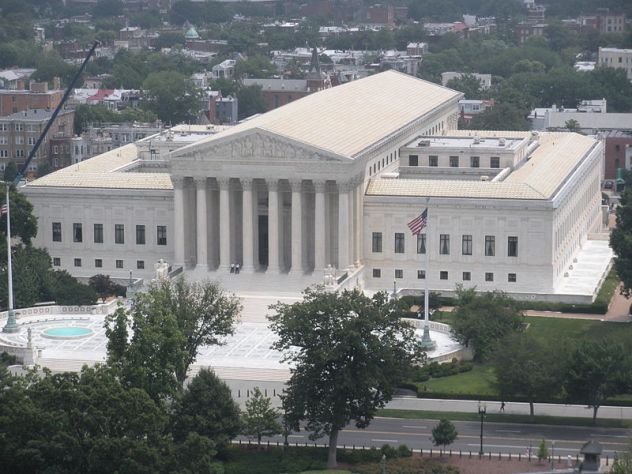DOMA in the Supreme Court: For or against?
One of the biggest events in the news these days and perhaps one of the biggest historical occurrences of this decade, the so-called Defense of Marriage Act (DOMA) is finally having its day in the Supreme Court. The title of this act is dubious at best, for it does little to defend marriage as a whole and really only exists in order to “defend” the antiquated view of marriage as it has been perceived during our country’s primarily Christian-driven history. As of Wednesday, March 27, 2013, DOMA is being put to the vote.
For those that don’t know the history of this discriminatory act, it was passed back in 1996. It obtained a vastly superior majority in both the House and the Senate and was then signed into being by Bill Clinton. One of the first presidents to seriously court the gay vote during his election,
As time has moved on, states are, one-by-one, passing laws to ensure that gay marriage is legal within their borders. Nine states so far have approved the legality of this union, nearly one-fifth of our country. It’s come to the point where DOMA is one of the biggest hurdles in the continuing fight to allow the LGBT community to become full members of our American society, free from persecution by the law just as women and minorities were freed of this persecution long ago.
The primary effect of DOMA is to deny federal benefits to legally married same-sex couples. More than 1000 different laws are being affected by DOMA’s presence. Even if people get married in those states that permit it, the federal government overrides that decision when it comes to issues such as tax benefits. Essentially, gay couples are being treated as a separate class of people, unable to secure the rights that most have been enjoying for hundreds of years. For the full text of DOMA, you can check out this link here.

Those who still argue in favor of keeping DOMA have many ways to approach the subject, though they all sing the same tune, using a past history of Christian-based morality. Many of the arguments, in fact, are almost identical to those used by religious groups when they sought to oppose black rights and women’s rights. As human beings we are predictable and all-too-willing to repeat the mistakes of the past, especially when doing so allows us to co-opt a proven effective rhetoric.
The most common arguments consist of those involving tradition, such as marriage being for a man and woman only, the nature of male/female marriage means that gay marriages wouldn't be “real” and that allowing for this sort of change would undermine the values that hold our society together. There are also the “natural” arguments that follow much the same vein, people saying that marriage is meant for breeding and since gay couples can’t have kids there should be no need for them to marry. And finally there are the purely religious arguments, such as the claim that gay marriage will weaken the meaning of marriage, that marriage is a religious institution and has nothing to do with civil rights and, perhaps the most ridiculous argument ever, that allowing gay marriage is an assault on the rights of religious people.
Again, almost every argument is religious in nature or based on beliefs that originally came from religious traditions. I have news for those people - the Age of Enlightenment has come and gone. There is no longer any need to think of religion as a governing body over those who are not religious or have differing religions. Still, the old arguments are repackaged to the ignorant and many believe in truth that their moral arguments come from an origin that does not involve religious dogma. This perpetuates the fight against gay rights even in non-religious circles and gives supporters of DOMA some secular ammunition to use when arguing for its validity.
When talking out against DOMA, supporters of gay marriage use the argument that marriage rights are indeed civil rights and that to deny them is discrimination. As our society evolves to encompass and accept differing value systems, so must we change and adjust our laws to become more modern. No longer can a 2000-year-old belief system determine the fate of the
So, we may not know how DOMA is going to turn out (or may, depending on when you read this), but the decision seems to me an obvious one. There is no argument to support discrimination other than personal prejudice. Laws should support all of those who constitute a significant number in our country, regardless of the beliefs of one side or the other. The ability to evolve is one of the major strengths of our particular form of government and to fight changes like this only undermines its structure. Bill Clinton, the signer of DOMA, has since changed his mind about the act. Hell, even infamous conservative Bill O’Reilly appears to be changing his tune! And if that guy can, it should be more than easy for most of us to realize that DOMA is a huge step into the past, to a time when discrimination was supported with legal backing.
Wedding Topper photo courtesy of Stefano Bolognini via Wikicommons
Supreme Court photo courtesy of Philosophicalswag via Wikicommons

2 comments